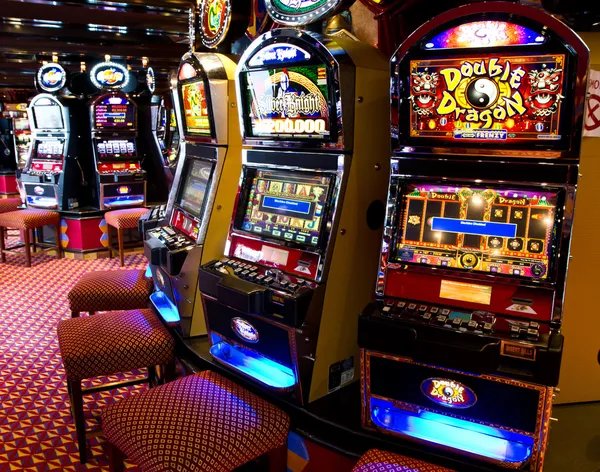What Is Bipolar?
Bipolar disorder, commonly known as manic-depressive disease, causes significant mood fluctuations, energy, and activity. You should visit best psychiatrist in Lahore.
These mood fluctuations usually switch between two states:
· Bipolar illness patients have tremendous mood, energy, and activity during manic episodes. They may be confident, impulsive, reckless, have racing thoughts, and have trouble sleeping. Mania impairs judgment and function.
· Depression: Bipolar disorder and major depressive disorder share depressive episodes. These episodes are characterized by excessive melancholy, despair, lack of interest or pleasure in activities, changes in eating and sleep habits, and suicidal or self-harming ideas. Depression may significantly reduce energy and drive.
Different kinds of bipolar disorder exist:
Manic episodes lasting at least seven days or requiring hospitalization characterize bipolar I disorder. Depression typically follows manic episodes or occurs alone.
Hypomania and depression characterize Bipolar II Disorder.
Cyclothymic Disorder: A milder variant of bipolar disorder with hypomania and moderate depression that lasts at least two years (one year in children and adolescents).
Other Bipolar and Related Disorders: Include symptoms not listed above.
Bipolar disorder may be caused by genetic, biochemical, and environmental causes. It usually starts in late adolescence or early adulthood and affects everyday living, relationships, and functioning.
Bipolar disorder treatment frequently combines psychotherapy (cognitive-behavioral or dialectical treatment), medication (mood stabilizers and antipsychotics), and lifestyle adjustments. The disorder’s treatment seeks to stabilize mood swings, avoid relapses, and enhance quality of life. Bipolar illness patients must collaborate with mental health providers to create a customized treatment plan.
Unspecific Bipolar
In the Diagnostic and Statistical Manual of Mental Disorders (DSM-5), “Unspecified Bipolar and Related Disorder” is a diagnostic category. This category is used when a person’s symptoms don’t fulfill Bipolar I, Bipolar II, or Cyclothymic Disorder criteria.
When a patient has bipolar-related symptoms but does not fulfill the criteria for any of the well-defined subtypes, a mental health practitioner may utilize the “Unspecified Bipolar and Related Disorder” diagnosis.
This has several causes:
· Atypical Presentation: The person may have mood swings, but they may not meet Bipolar I, Bipolar II, or Cyclothymic Disorder diagnostic criteria.
· Incomplete Information: Lack of previous data or a short observation period may prevent a proper evaluation of a person’s mood episodes.
· Evolution of Symptoms: Bipolar disorder may not have an obvious subtype at first, therefore a diagnosis may take time.
An “Unspecified Bipolar and Related Disorder” diagnosis does not suggest the person’s symptoms are less severe or do not need treatment. Based on the individual’s symptoms and demands, mental health specialists will personalize therapy to their particular experiences.
If you or someone you know is experiencing mood swings or other mental health symptoms, you should contact a mental health professional for a comprehensive examination, diagnosis, and treatment.
Can bipolar be treated?
As a chronic mental health illness with repeated mania and depression, bipolar disorder cannot be healed. However, with proper medication and management, many bipolar illness patients may live stable and productive lives.
Here are some bipolar illness treatment and management considerations:
Medication: Bipolar disorder care typically requires medication. Lithium and other anticonvulsants are often administered to stabilize mood fluctuations. Some patients may need antipsychotics and antidepressants. These drugs may regulate symptoms and minimize mood swings.
· Psychotherapy: CBT, DBT, and psychoeducation may assist bipolar illness patients in understanding their condition, managing stress, and building coping techniques.
· Lifestyle Management: Lifestyle variables affect bipolar disorder management. Sleeping regularly, reducing stress, avoiding drug addiction, and exercising regularly may help stabilize mood and decrease mood episodes.
· Support System: Bipolar illness patients need family, friends, and mental health specialists. Support may aid with medication adherence, mood swing detection, and emotional support.
· Regular Monitoring: Mental health professionals must monitor symptoms, drug efficacy, and adverse effects. Over time, treatment programs may need adjustments.
· Self-Awareness: Recognising mood swings causes and warning signals helps empower people to manage their disease.
Although bipolar illness is incurable, many people may attain stability and long-term well-being by controlling their symptoms and following their treatment programs. Early diagnosis and treatment are vital for bipolar disorder patients to achieve and maintain stability. Mental health experts must engage with patients to build a personalized treatment plan.
At what age does bipolar begin?
Bipolar disorder usually starts in late adolescence or early adulthood. The average age of diagnosis for bipolar disorder is 25, with onset in late teens to early 20s. However, bipolar disorder may occur in youngsters and older individuals, but less often.
Here are age-related patterns:
· Childhood Onset: Bipolar illness in children and teenagers is uncommon. This is called early-onset bipolar disorder. It might be difficult to identify in youngsters since symptoms may vary from adults and overlap with other mental health issues. Children must be diagnosed and treated early to manage the illness.
· As indicated, bipolar disorder usually starts in late adolescence or early adulthood. This is when many people first encounter mood swings and other disorder symptoms.
· Bipolar disorder may develop in individuals in their thirties, forties, or later in life, however, this is rare. Late-onset bipolar illness may be caused by genetic, environmental, and other causes.
Bipolar disorder is difficult to diagnose since it has complicated mood patterns and may be misdiagnosed. If someone has mood swings, significant energy shifts, and other bipolar disorder symptoms, they should consult a mental health expert for a comprehensive examination and diagnosis. Effective management and quality of life depend on early diagnosis and treatment.
Conclusion
In conclusion, bipolar disorder is a complicated, chronic mental illness that causes significant mood swings between manic and depressed periods. It usually starts in late adolescence or early adulthood but may affect youngsters and elderly persons less often. Medication, psychotherapy, lifestyle management, and support networks may treat bipolar disorder, which cannot be cured. Bipolar illness patients need early diagnosis and treatment to stabilize, manage symptoms, and live satisfying lives. Bipolar illness symptoms need precise diagnosis and individualized treatment from a mental health specialist.
FAQS
1. What are typical bipolar symptoms?
Symptoms include mood fluctuations from manic to depressed, sleep disturbances, irritability, impulsivity, and food changes.
2. How is bipolar diagnosed?
A mental health practitioner evaluates a person’s symptoms, medical history, and family history to diagnose. There are no lab tests for bipolar disorder.
3. Which causes bipolar disorder?
The etiology is unknown, although genetic, biochemical, and environmental factors are suspected.
4. Is bipolar hereditary?
Genetics may run in families with bipolar illness. A family member with bipolar illness increases risk, although it does not assure development.
5. Can bipolar illness be treated without medication?
Medication is frequently the first line of treatment for milder bipolar disease, although counseling, lifestyle improvements, and a strong support system may assist. However, moderate to severe instances need medicine.
Support them emotionally, promote professional assistance, and educate yourself on the disease to better understand their feelings. Help them follow their therapy and be gentle through mood swings.
Treating bipolar illness should be adapted to each person’s individual experience. You or someone you know should see a mental health professional for help with bipolar illness.











